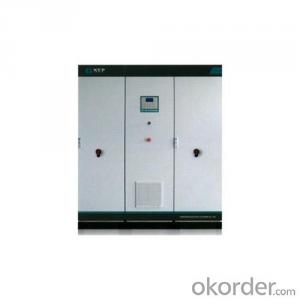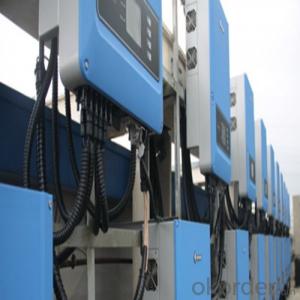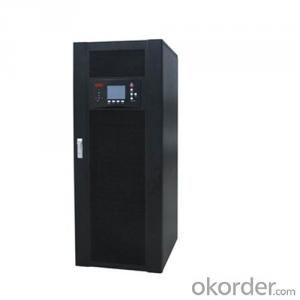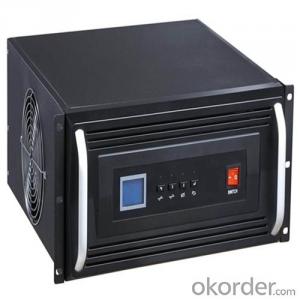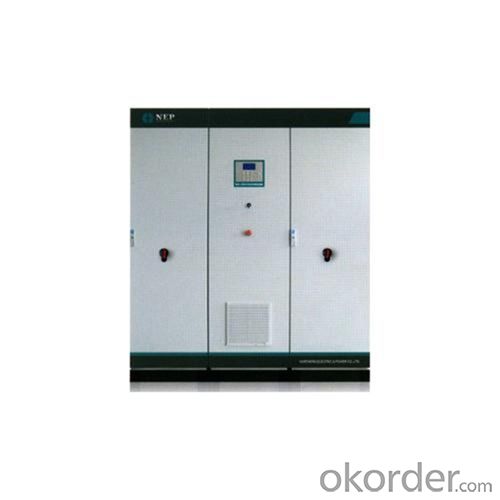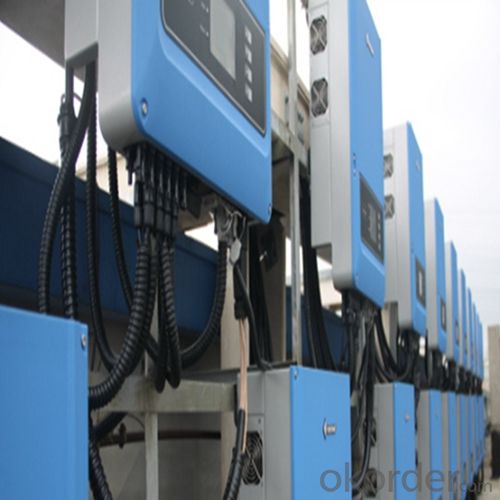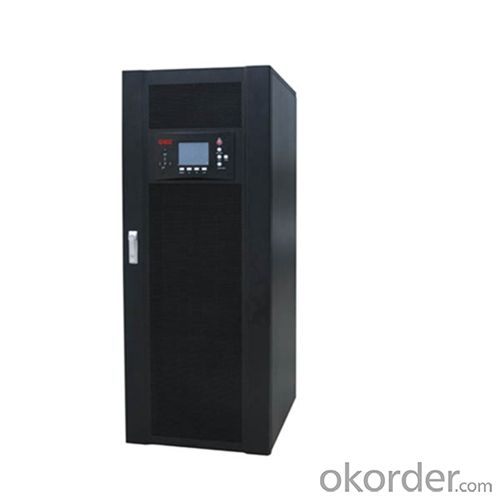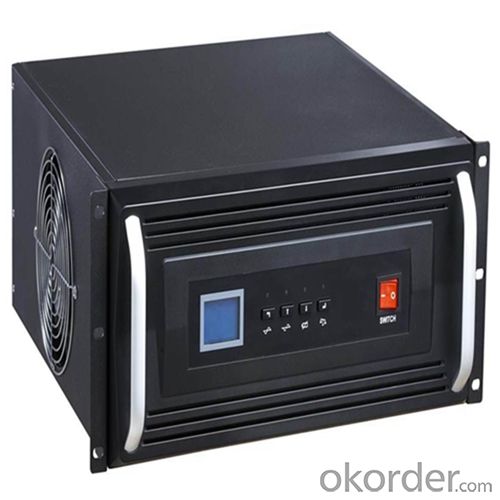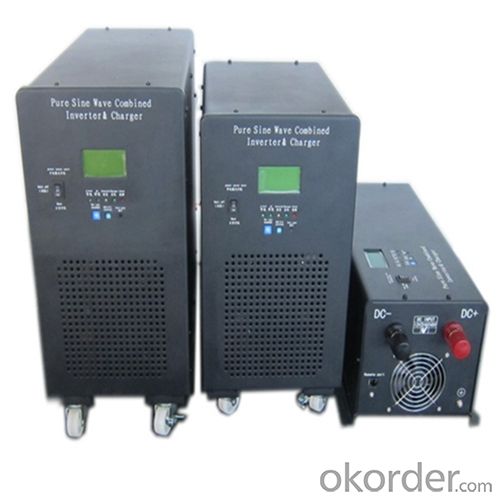Solar Inverter Small:Approved MPPT Solar Charger 3000W 24V Pure Sine Wave Inverter
- Loading Port:
- China main port
- Payment Terms:
- TT OR LC
- Min Order Qty:
- 1 pc
- Supply Capability:
- 3000 pc/month
OKorder Service Pledge
OKorder Financial Service
You Might Also Like
Performance Characteristics
· 1. Suitable for all electrical equipments
· 2. Large LCD display for more detailed content
· 3. CPU controlled; fast transfer time
· 4. Intelligent battery management, prolonging the service life of the battery
· 5. Complete protection function, high reliability
· 6. Can provide high current charge
· 7. Can match different types of batteries
· 8. Disassembled LCD box which can make the operation in a distance of 15 meters
Product introduction
EP series is sine wave low frequency inverter, which is specifically designed for home appliances. It is equipped with a big LCD screen so all information is displayed in detail, which makes it more convenient to use. Charging current of the inverter is adjustable from 5A to 45A and you can also select different charging voltage to charge different types of batteries so batteries are under great protection.
Our Service
Samples
Samples are Available for Testing and Market Test.
Warranty
We provides warranty against defects in materials and workmanship for its Uninterruptible power supply, Power inverter/chargers including inverter12v 24v 48V, Solar charge controllers (“Product”).
OEM Service
OEM service is strictly based on the ISO9001 ISO14001 quality assurance system. The TOP involves the effective teamwork of departments from Sales, R&D, and Engineering, purchasing, production & QA, assuring a high quality product and prompt delivery for customers. The standardization of our quality system and the quality stability has earned us the trust of our customers for 12 years.
We have 10 sets of automatic insertion equipments, ICT PCB testing equipments, ATE automatic testing center and aging workshop for all products. Monthly output of UPS series exceeds 200,000. We have been offering OEM service for over 12 years.
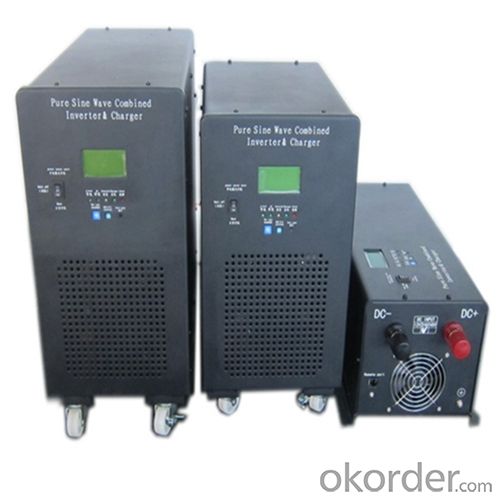
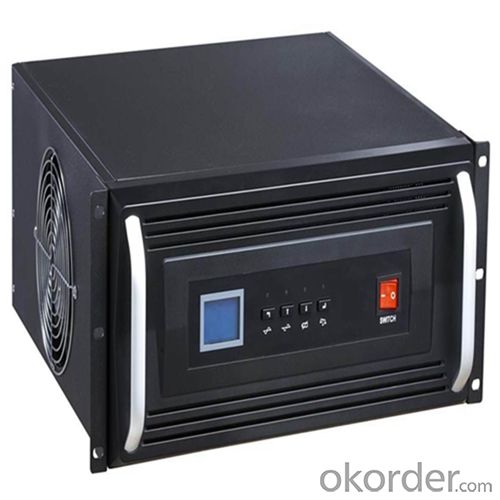
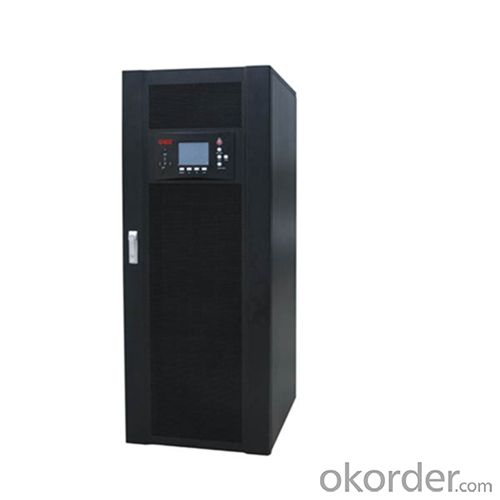
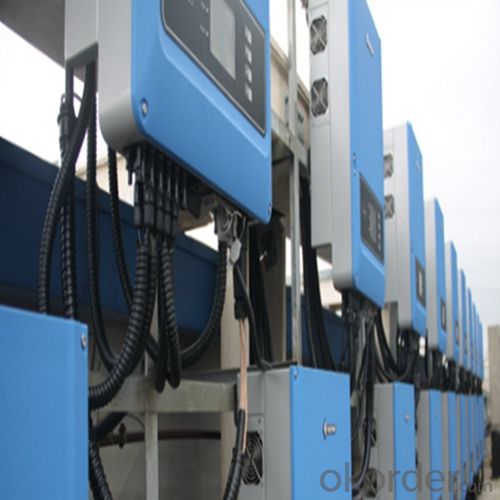
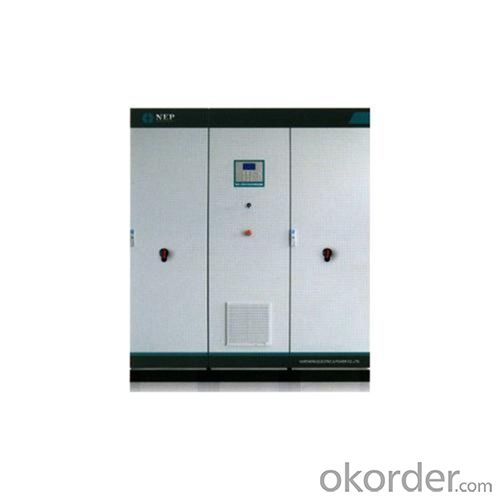
Specifications
Input | |
Input Voltage Range | 182-265VAC |
Output | |
Input Voltage Range | Batt.Mode:50±0.3Hz Mode:48-54Hz(50Hz) or 58-64Hz,Same as AC |
Output Wave Form | Sine Wave (Batt,mode) |
Transfer Time | 10ms(Typical) |
FAQ:
Q: Do you have the CE, TUV, UL Certification?
A: We’ve already passed all the tests, and any certificate is available.
Q: Have you ever sold your products to companies in my country?
A: Of course, we have customers in all general PV markets, but I think we should expand our market share along with the market growth.
Q: When did your company set up? You are a new company, how can I believe your quality?
A: We entered into Solar PV industry in 2005, now we have several plants in manufacturing of a-Si and c-Si panels, and our capacity is 220MW per year. Till now we have already passed all the tests by authorized laboratories, e.g. TUV, CE, UL.
Q: Can you help us install the module if we cooperate with you?
A: We haven’t entered into installation sector, but we have the plan in near future.
Q: How do you pack your products?
A: We have rich experience on how to pack the panels to make sure the safety on shipment when it arrives at the destination.
Q: Can you do OEM for us?
A: Yes, we can.
Q: Can we visit your factory?
A: Surely, I will arrange the trip basing on your business schedule.
- Q: Can a solar inverter be used with a solar-powered lighting system?
- Yes, a solar inverter can be used with a solar-powered lighting system. The solar inverter is responsible for converting the direct current (DC) generated by the solar panels into alternating current (AC) that can be used to power the lighting system. It ensures efficient energy conversion and ensures compatibility between the solar panels and lighting system.
- Q: Can a solar inverter be used with a solar-powered air cooling system?
- Yes, a solar inverter can be used with a solar-powered air cooling system. The solar inverter is responsible for converting the direct current (DC) generated by the solar panels into alternating current (AC) that can be used to power the air cooling system. This allows the system to operate efficiently using solar energy.
- Q: Installation and maintenance of photovoltaic grid - connected inverter
- , any failure that affects the safety performance of the inverter must be immediately removed before turning on the inverter again.
- Q: How does a solar inverter handle voltage phase imbalance in the grid?
- A solar inverter handles voltage phase imbalance in the grid by continuously monitoring the grid voltage and adjusting its internal control algorithms accordingly. This allows the inverter to dynamically balance the output between the phases, compensating for any phase imbalances in the grid. By doing so, the solar inverter ensures that the electricity it generates and feeds into the grid is well synchronized with the grid's voltage and phase, minimizing any adverse effects of phase imbalance.
- Q: What is the role of a power management system in a solar inverter?
- The role of a power management system in a solar inverter is to optimize the generation, distribution, and usage of solar power. It ensures efficient energy conversion, monitors the solar panel performance, manages the flow of electricity to and from the grid, and maximizes the overall system efficiency. Additionally, it may include features such as power factor correction, voltage regulation, and protection mechanisms to enhance the reliability and safety of the solar inverter.
- Q: How does a solar inverter handle power export limitations imposed by the grid?
- A solar inverter handles power export limitations imposed by the grid through a process called power factor control. The inverter continuously monitors the grid's voltage and frequency, adjusting its power output accordingly. If the grid imposes limitations on power export, the inverter reduces its output to stay within the allowed limits. This ensures that the solar system operates in compliance with the grid regulations and prevents any excess power from flowing back into the grid.
- Q: How does MPPT improve the efficiency of a solar inverter?
- MPPT, or Maximum Power Point Tracking, improves the efficiency of a solar inverter by constantly adjusting the operating point of the solar panel to extract maximum power from the sunlight. It ensures that the solar panel operates at its maximum power point, regardless of changing weather conditions or variations in the solar irradiance. This optimization leads to higher energy conversion efficiency, maximizing the power output of the solar panel and ultimately increasing the overall efficiency of the solar inverter.
- Q: What is the role of a voltage control unit in a solar inverter?
- The role of a voltage control unit in a solar inverter is to regulate and stabilize the voltage of the direct current (DC) power generated by the solar panels before it is converted into alternating current (AC) power. It ensures that the voltage remains within the desired range to optimize the efficiency and performance of the solar inverter, as well as protect the connected appliances or grid from potential damage due to voltage fluctuations.
- Q: Can a solar inverter be used with a three-phase electrical system?
- Yes, a solar inverter can be used with a three-phase electrical system. In fact, many commercial and industrial solar installations use three-phase inverters to convert the direct current (DC) power generated by solar panels into alternating current (AC) power that can be used by the electrical grid. This allows for efficient power conversion and distribution in three-phase systems, which are commonly used in larger electrical installations.
- Q: Can a solar inverter be used with different types of energy management systems?
- Yes, a solar inverter can be used with different types of energy management systems. Solar inverters are designed to convert the direct current (DC) produced by solar panels into alternating current (AC) that can be used in various electrical systems. They can be integrated with different energy management systems, such as battery storage systems, smart grids, or even hybrid systems that combine solar power with other renewable energy sources. This flexibility allows for efficient and optimized utilization of solar energy in different setups and applications.
Send your message to us
Solar Inverter Small:Approved MPPT Solar Charger 3000W 24V Pure Sine Wave Inverter
- Loading Port:
- China main port
- Payment Terms:
- TT OR LC
- Min Order Qty:
- 1 pc
- Supply Capability:
- 3000 pc/month
OKorder Service Pledge
OKorder Financial Service
Similar products
Hot products
Hot Searches
Related keywords
